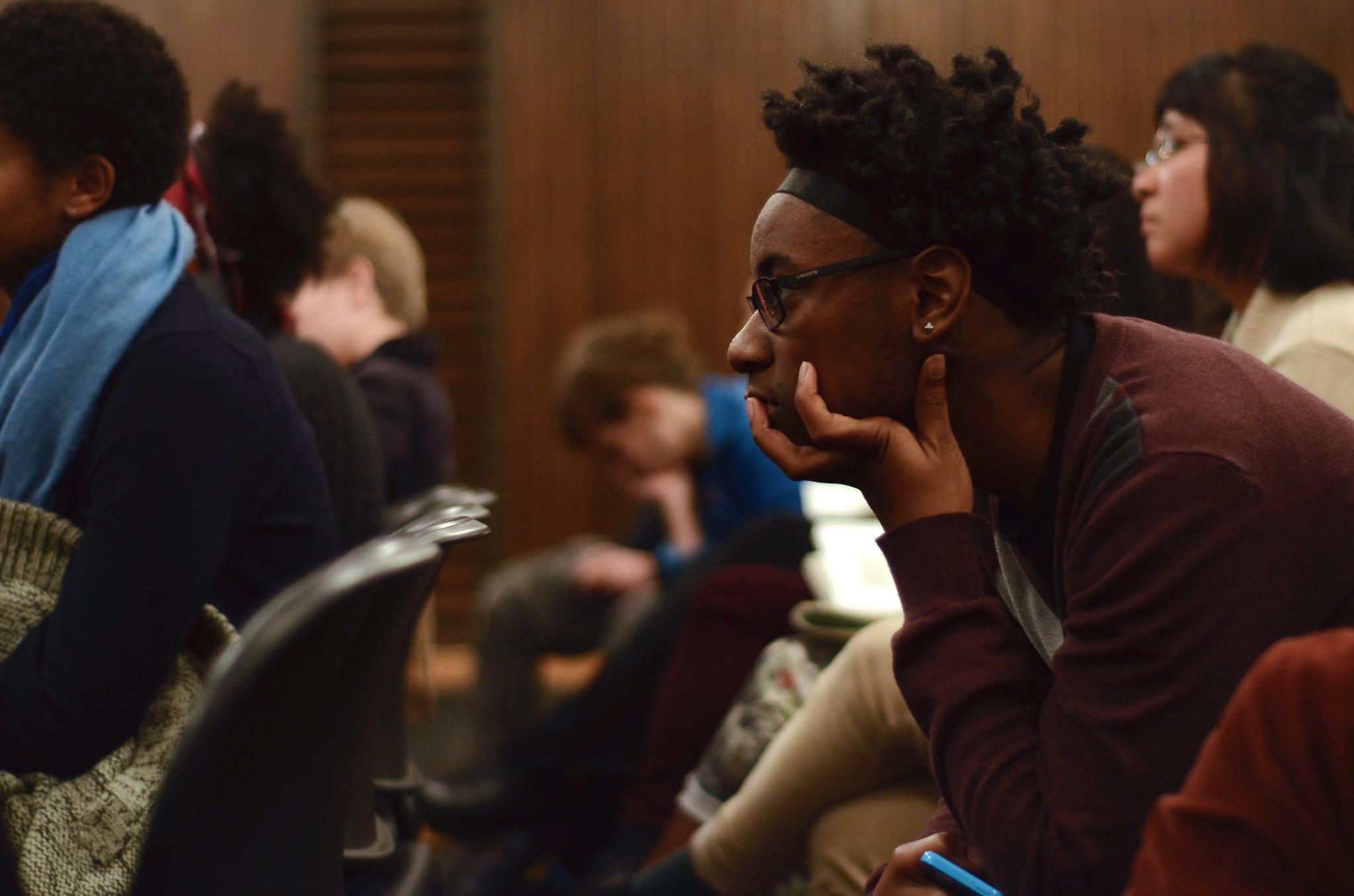
In 2002, a group of Lewis & Clark students sought to create a space where students of color could, according to the Ray Warren Symposium website, “share their experiences and find an outlet for voicing them to the community.
It was then that Race Monologues was born. First housed as part of the Gender Studies symposium in 2002, students of color presented spoken-word monologues, poetry, and songs about their experiences on campus as well as in the world at large.
With the creation of the Ray Warren Symposium in 2004, Race Monologues moved presentations to align with the Ray Warren Symposium.
“It’s always been the big finale,” Tiffany Farmer ’18, one of the co-coordinators for Race Monologues, said. “Like, we’ve had so many panelists, we’ve had student presenters, but Race Monologues is by the students and for the students, and I think that just wraps it all up and brings it back to Lewis & Clark.”
The Race Monologues grew in popularity, eventually moving from Stamm to the Chapel because the numbers of attendees increased.
“I think the switch to the chapel is a bit better because, although it’s not an open mic, it gives that sort of open mic feel,” Farmer said. “When you’re in the chapel, it’s easier to focus when the lights are dim on the audience and you just have a spotlight on you.”
On Friday, Nov. 11 at 7 p.m, nine LC students will take the stage in the Chapel to present their monologues. These students have been working throughout the semester, meeting with coordinators once a week, and participating in workshops and prompts in order to write the monologues that they will deliver.
The audience caps at 460 people. Once the first 460 enter the Chapel, the job of the audience is to listen to and discuss the presentations.
“Coming and being a part of the conversation, I think, is the most important,” Farmer said. “Sitting there and listening to my story is the experience I want [for audience members]. That’s what I want you to get, and then immediately that’s when I want you to have conversations with your peers.”
“I feel like each student gets what they need out of the monologues, in a different way,” Lani Felicitas ’18, another co-coordinator for the Race Monologues, said.
Farmer agrees.
“I think the beauty of how raw and how real Race Monologues is, is it brings a conversation, not only to people of color, but also to everyone else. It’s like, ‘Oh! I identify with that,’” Farmer said. “I’ve had someone come up to me and break down. I’ve had someone come up to me and just be silent. Or just that thinking face. It varies.”
“That’s one of the biggest parts of Race Monologues,” Felicitas said. “To complicate these narratives and stories about ourselves.”
Subscribe to the Mossy Log Newsletter
Stay up to date with the goings-on at Lewis & Clark! Get the top stories or your favorite section delivered to your inbox whenever we release a new issue.

Leave a Reply